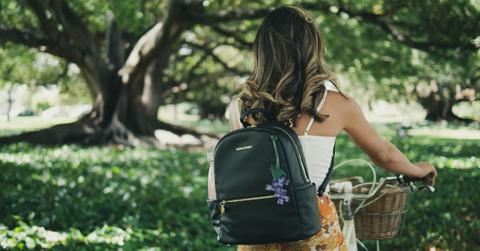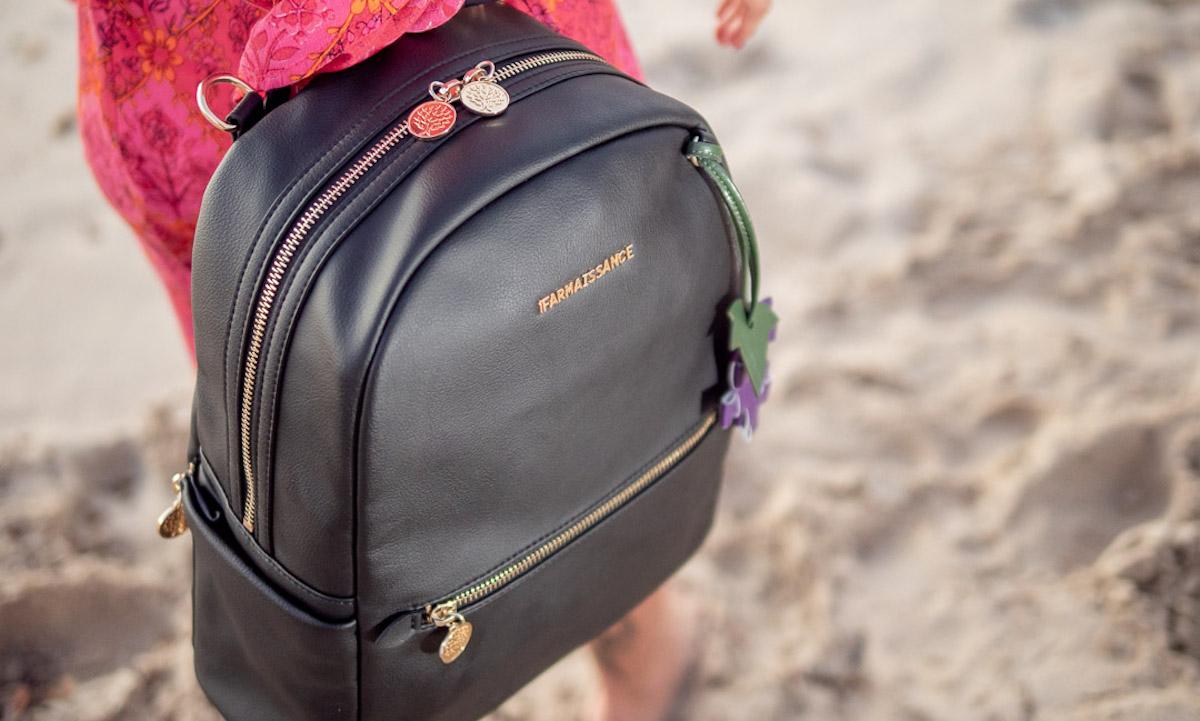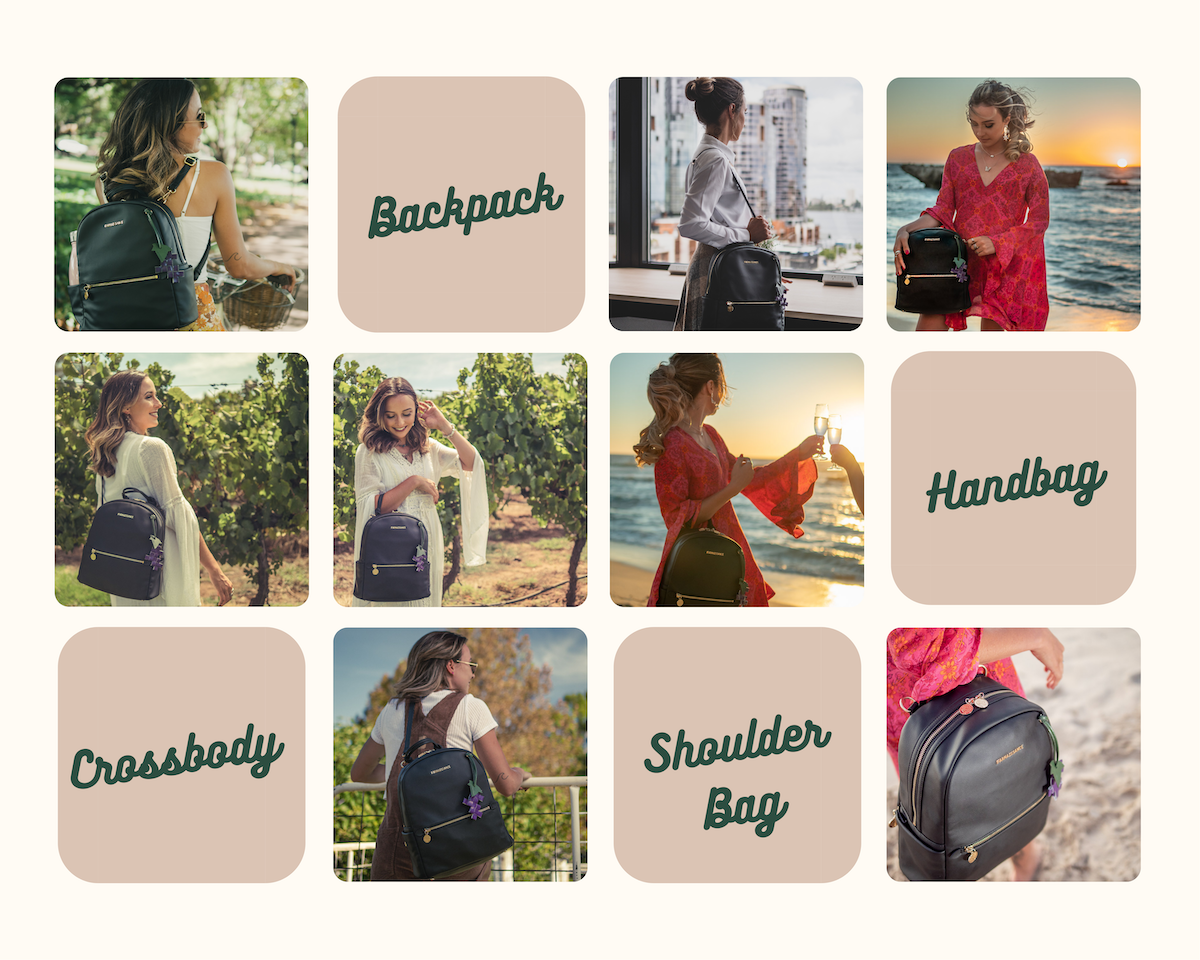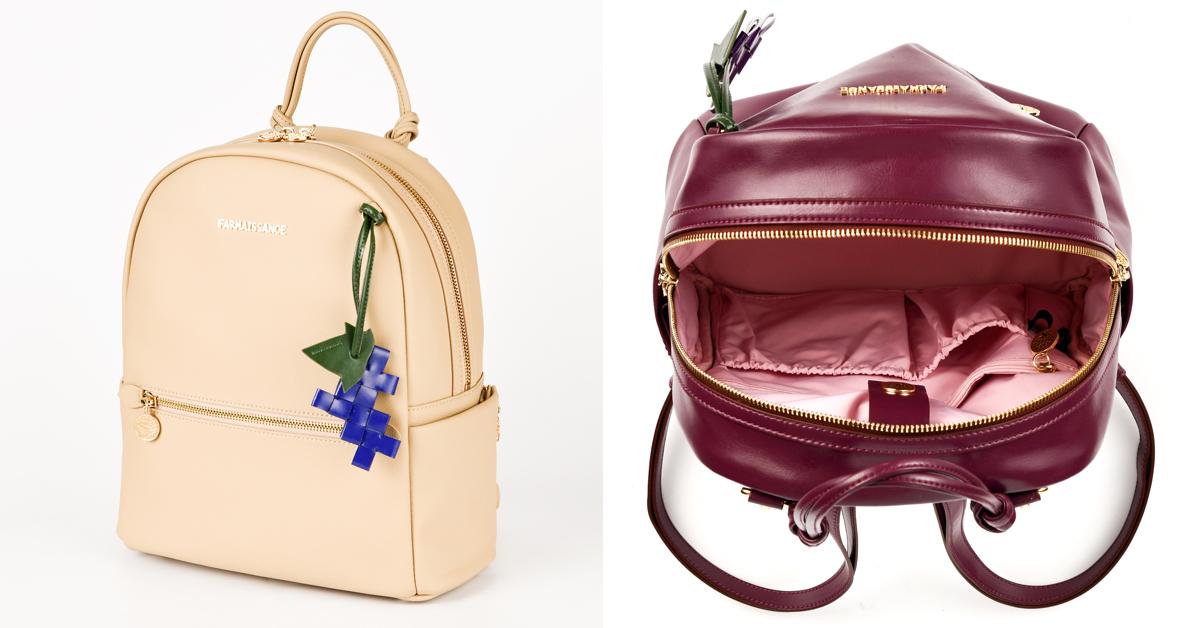Vegan Grape Leather Bag Raises $200K on Kickstarter
Published May 24 2021, 2:44 p.m. ET

From cactus leaves to corn to apple peels, so many plants can be used to create innovative plant-based leathers, proving that it’s possible to make leather without animals — or plastic-based materials. The newest sustainable vegan leather to shake up the fashion industry is vegan grape leather, made with the byproducts of the winemaking process that often go to waste.
Perth, Australia-based designer Jennifer Gardner, her husband Gary Gardner, and their company iFarmaissance are putting vegan grape leather on the map with the grappaSac, a stylish, functional, day-to-night bag made with grape leather. In fact, the bag just raised more than $200,000 in a Kickstarter campaign.
Green Matters recently interviewed Jennifer Gardner to learn more about how grape leather is made, the grappaSac's sustainable features, and her hopes for the future of the fashion industry.

Grape leather is made with wine industry waste products.
Milan, Italy-based biomaterials company VEGEA makes the grape leather used in the grappaSac through a patented, nontoxic process. As Gardner explains to Green Matters in an email, VEGEA works with multiple Italian wineries, which give VEGEA the skins, seeds, and stalks that are left over from the winemaking process.
To make grape leather, VEGEA extracts bio-oil from the grape seeds, dries the other grape materials, and then polymerizes all the grape materials. That is then combined with natural fibers, resulting in a soft, textured, plant-based leather. The final product is made from 78 percent eco-composite organic cotton and 22 percent water based PU.
Gardner adds that this process consumes very little water, and that the water can be used over and over again. This is in stark contrast to the animal-based leather industry, which uses immense amounts of water to sustain cows before they are slaughtered for their skin, and in the leathermaking and tanning processes, which are quite water intensive and often pollute waterways.
The grape leather grappaSac is the result of a lifetime of work for Gardner.
“I have a lifetime of experience in the handbag industry using real leather,” Gardner, who worked in the industry for more than three decades, tells Green Matters. “But animal cruelty and environmental issues are increasingly affecting consumer choices as well as the climate change issues, which are now at the forefront of everyone’s thinking.”
That realization led Gardner to found iFarmaissance, which also sells bags made from apple leather, cactus leather, and deadstock fabric on its website. But it was taking a Cambridge University Institute for Sustainability Leadership course called “Business and Climate Change: Towards Net Zero Emissions” that inspired Gardner to design the grappaSac.
“I believe plant-based leathers are the future, and although further innovation is required, they are already a quality replacement leather which can be used to create beautiful eco-friendly end products,” she says.
The grappaSac is sustainable, versatile, and durable.

Gardner designed the grappaSac to be as sustainable, versatile, durable, and functional as possible. The bag includes four styles in one, thanks to its convertible strap system: a backpack, shoulder bag, crossbody, and clutch (though the bag is quite a lot bigger than your average evening clutch). The bag also includes 10 interior pockets to keep you organized, and it can fit a lot more than it appears.
It is also water resistant, comes in four colors (black, blue, beige, and, vinaccia, which is a red wine hue), and the lining is made from recycled water bottles. Plus, iFarmaissance, which is a woman-owned and Asian-owned business, is working with nonprofit One Tree Planted, which will plant one tree for every grappaSac purchased.
The bag hit its funding goal of $2,575 within just two hours of launching on Kickstarter, and has has fundraised a whopping $235,513 as of May 24, 2021.

The success of the Kickstarter “proved to us that the concept of a well designed bag made from an innovative, biobased leather-like material is accepted by consumers,” Gardner says. “It gives us the confidence to continue with our full range of handbags and accessories made from various other biobased materials.”
And Gardner is excited to see where the fashion industry goes.
“For us, slow fashion is the future and will always be the essence of the iFarmaissance brand. Our aim is to have complete circularity in our products,” she says, before paraphrasing a sentiment that she attributes to Patagonia: “Circularity is ultimately not just about ‘take back’ programs, but about reimagining and conceptualizing products from the beginning.”
She adds: “Our wish for the future of fashion is that there is innovation in the materials we use, and end of life impacts of our products to prioritize the environment, and that this is adopted as the new normal to counter fast fashion.”